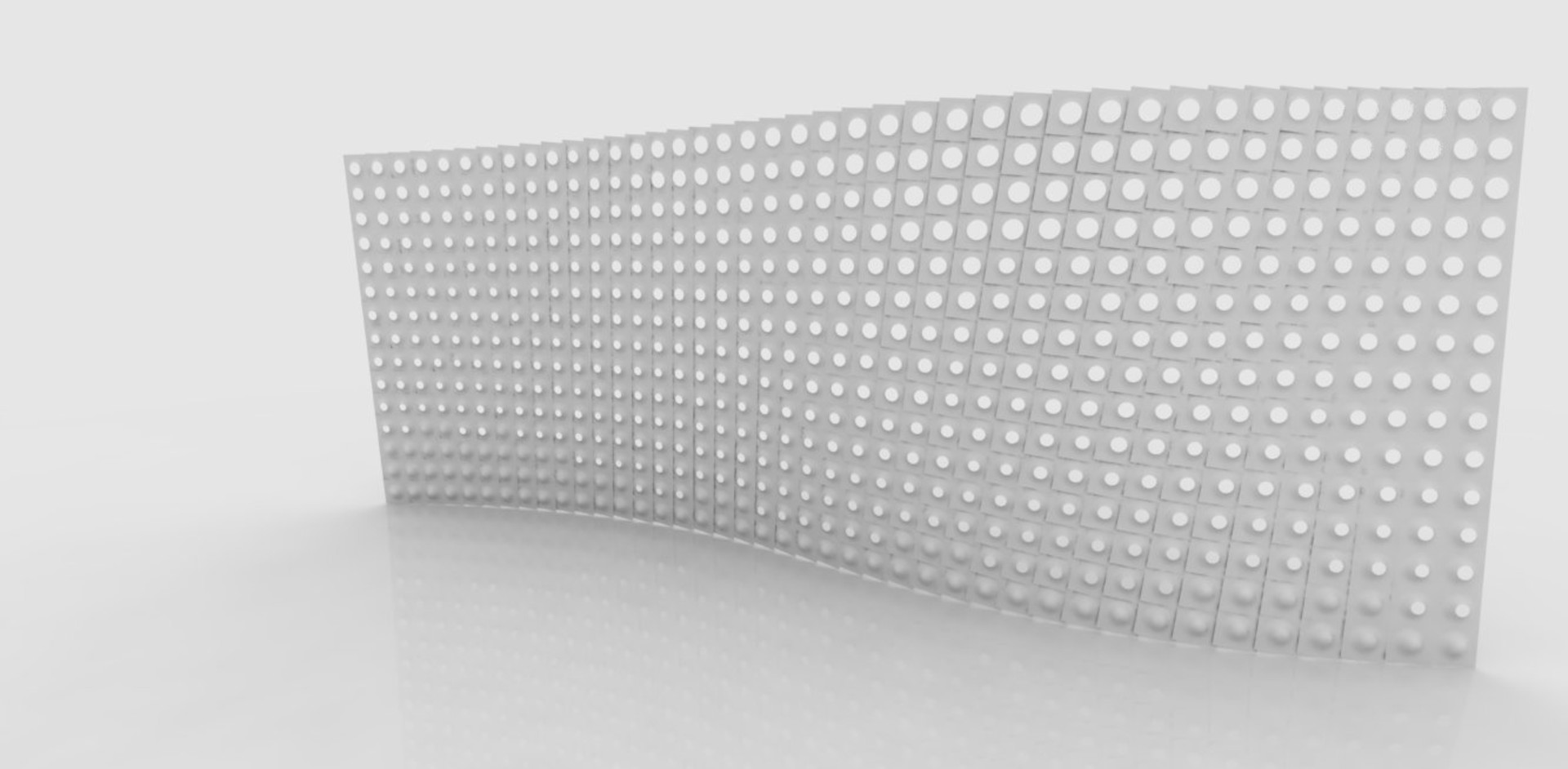Modulight: Mold Optimization for Variability
Project Credits: (UC Berkeley)
Photo Credits:
This two-phase project combines methods of computer-aided design and machining with centuries-old techniques of fabrication in order to study the potential for low-cost production of building elements with embedded variability. Slip-casting with liquid clay is a well-documented process and was chosen for this exercise for the low cost and ready availability of material and the relative ease of production by hand.
By exploring the imprecision in the production process, one mold and a single tile design are able to generate a family of tiles with varying porosity. This fabrication method allows a single system to accommodate a range of programmatic requirements. The tile assembly can be used for light filtration or privacy variation within spaces of widely differing proportions and needs. Each tile can be used as a one-sided element or it can be paired while still in its greenware stage with another tile to create a double-sided block.




